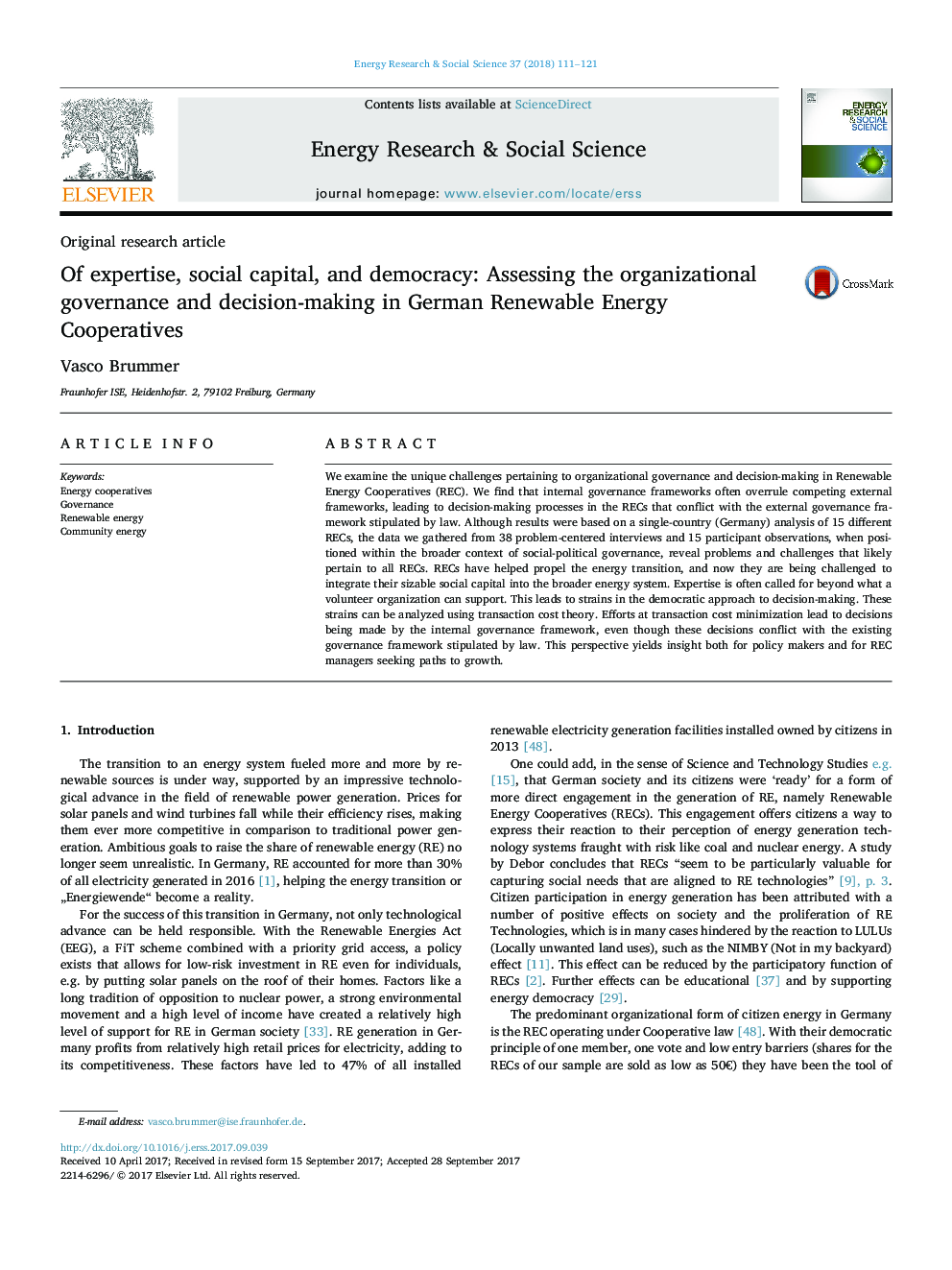| Article ID | Journal | Published Year | Pages | File Type |
|---|---|---|---|---|
| 6463716 | Energy Research & Social Science | 2018 | 11 Pages |
We examine the unique challenges pertaining to organizational governance and decision-making in Renewable Energy Cooperatives (REC). We find that internal governance frameworks often overrule competing external frameworks, leading to decision-making processes in the RECs that conflict with the external governance framework stipulated by law. Although results were based on a single-country (Germany) analysis of 15 different RECs, the data we gathered from 38 problem-centered interviews and 15 participant observations, when positioned within the broader context of social-political governance, reveal problems and challenges that likely pertain to all RECs. RECs have helped propel the energy transition, and now they are being challenged to integrate their sizable social capital into the broader energy system. Expertise is often called for beyond what a volunteer organization can support. This leads to strains in the democratic approach to decision-making. These strains can be analyzed using transaction cost theory. Efforts at transaction cost minimization lead to decisions being made by the internal governance framework, even though these decisions conflict with the existing governance framework stipulated by law. This perspective yields insight both for policy makers and for REC managers seeking paths to growth.
